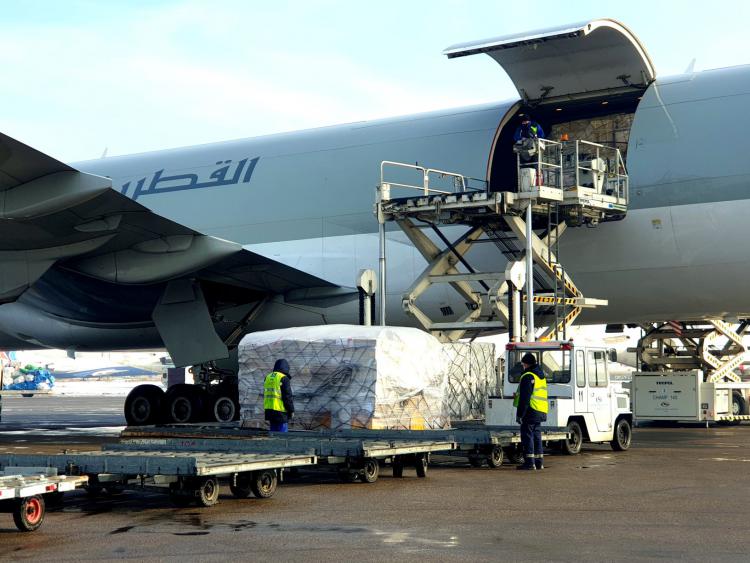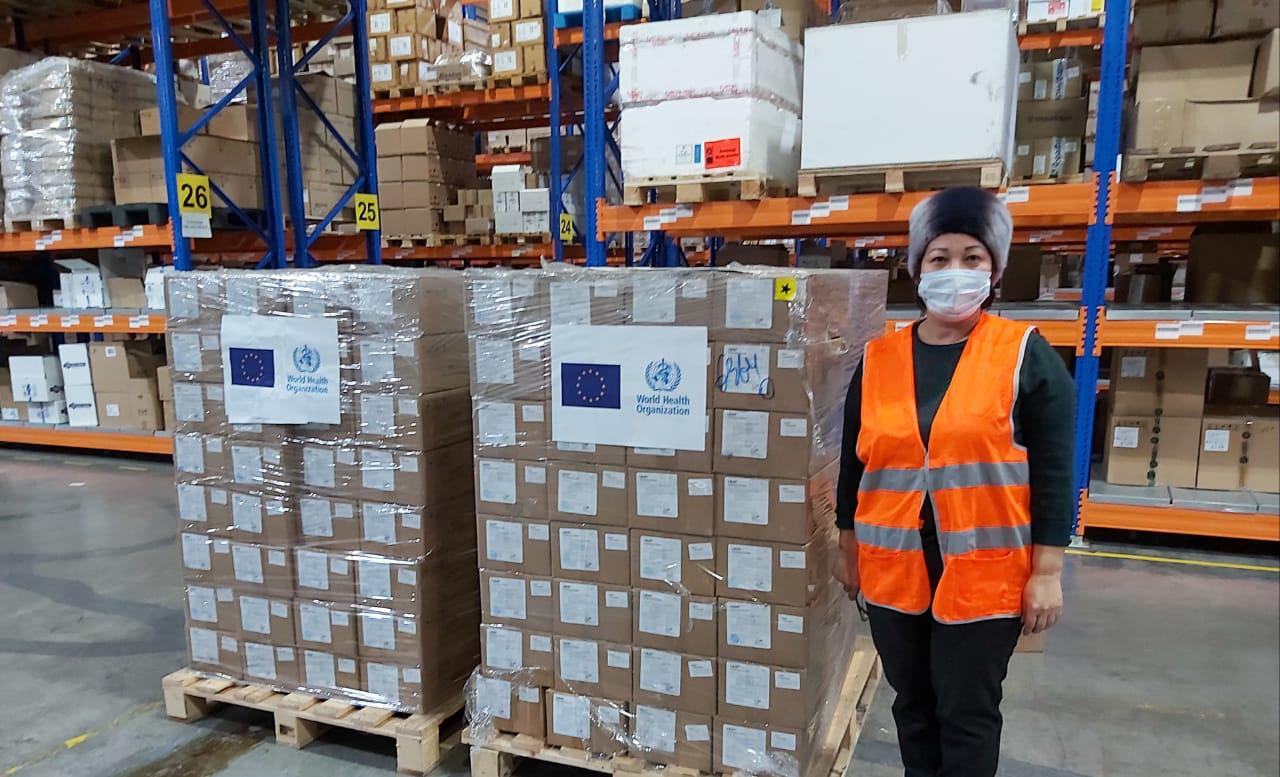NUR-SULTAN – The World Health Organization (WHO) has shipped 8,317 kilograms of medical supplies to Kazakhstan with the European Union’s (EU) financial support to assist and protect medical workers in their fight against COVID-19, the EU delegation to Kazakhstan announced on Jan. 26.

Humanitarian cargo have been unloaded at the Nursultan Nazarbayev International Airport. Photo credits: eeas.europa.eu.
The shipment contains personal protective equipment, such as surgical masks, gowns and laboratory equipment to support the Kazakh government in its response to the COVID-19 pandemic.
The cargo will be sent to SK Pharmacy, a single distributor of medicines and medical devices appointed by the Kazakh Ministry of Healthcare, for further distribution to Kazakh medical organizations in line with priorities and needs.
“During this challenging time, it is extremely important to show solidarity and support for healthcare workers in all countries,” said Caroline Clarinval, head of the WHO Country Office in Kazakhstan.
“Once again, we express our gratitude to the European Union as the largest donor during this pandemic, ensuring supplies of medical devices to Kazakhstan. The health condition of Kazakh medical workers who are on the frontlines must remain our priority,” she added.

Surgical masks, gowns and laboratory equipment will be distributed to Kazakh medical organizations. Photo credits: eeas.europa.eu.
“The medical cargo that we delivered to Kazakhstan to fight the pandemic thanks to our partnership with the WHO is a part of the global assistance program that the EU is providing,” said Sven-Olov Carlsson, EU Ambassador to Kazakhstan.
“I am sure that only with mutual assistance, openness and effective international cooperation, we will not only defeat this crisis, but we will also be able to prevent this kind of public healthcare threat in the future,” Carlsson added.
This cargo is part of a joint WHO and EU delivery plan to support national healthcare authorities in responding to COVID-19.
In July 2020, the EU launched the Central Asia COVID-19 Crisis Response (CACCR) program, a solidarity package with a budget of 3 million euros (US$3.6 million), to help Central Asian countries including Kazakhstan benefit from the program.
The CACCR program is focused on the mitigation of the impact of the current COVID-19 pandemic.
The program also seeks to ensure the long-term sustainability of national health systems by focusing on capacity building.
